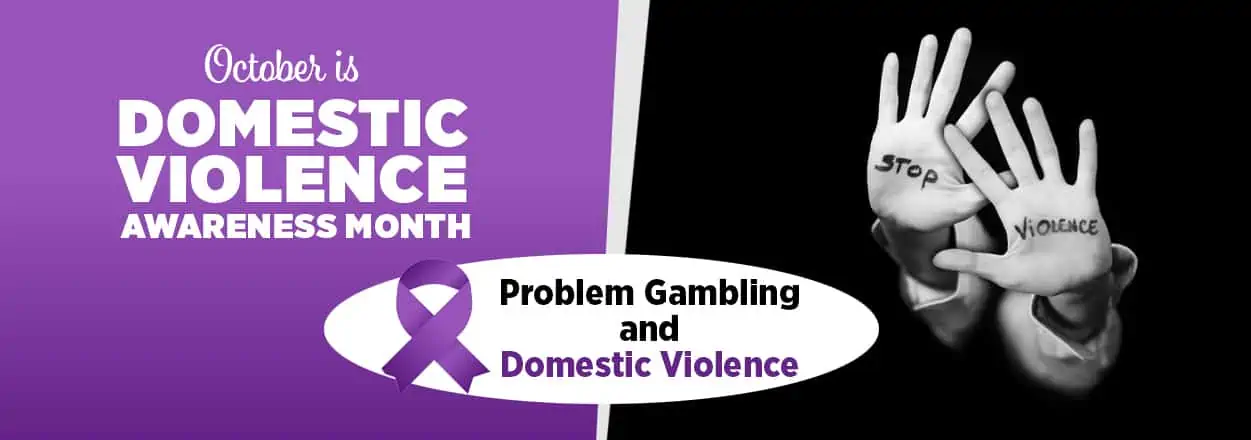For most, gambling can be a fun, recreational activity. But for some, gambling can get out of control; it can become problematic and addictive. It can become harmful.
Problem gambling is not only harmful to the gambler, for example, loss of financial stability, relationships, job, but can also be harmful to the family unit. This harm may manifest itself into psychological and/or physical danger.
Problem gambling is an addictive disorder characterized by thoughts and behaviors that are increasingly centered around gambling. Problem gamblers may become irritable, agitated, or violent when they cannot gamble. Violence may be more likely when they are confronted by loved ones about their gambling, when they attempt to stop, or when they are unsuccessful.
Research suggests that gambling related violence does occur, and often results in domestic violence incidents particularly at times when gamblers experience financial losses. There is also limited, but growing, international evidence that problem gambling is consistently associated with intimate partner violence (IPV), as well as violence that extends beyond intimate partners into the broader family (Dowling, Suomi, et al., 2016).
STOP THE HARM – STOP THE VIOLENCE
Help for the Gambler
- Take a time-out – Walk away
- If you think it’s a financial solution, it’s likely a problem
- Have the conversation with a Peer Recovery Support Specialist who can connect you to resources for help and hope. 1-800-GAMBLER
- Practice relaxation skills
- Make an appointment to speak to a trained counselor at no cost to you.
Help for the Family Member
- Seek Support
- Remove yourself from any situation where you feel imminent danger.
- Have the conversation with a family peer support specialists who can connect you to resources for help and hope. 1-800-GAMBLER
- Have a safety plan – Who to call and where to go in an emergency
- Call 911 or 988
- Consider filing a protective order
Did you know?
- Nearly 25% of pathological gamblers reported engaging in spousal abuse
- Over 15% of pathological gamblers reported engaging in child abuse
- Children of problem gamblers are two-three times more likely to be abused by a parent than their peers.
- Wives or intimate partners of problem gamblers are 10.5 times more likely to visit an emergency room as a result of being physically assaulted, compared to wives or intimate partners of problem drinkers.
If you or someone you know is struggling with gambling problem





